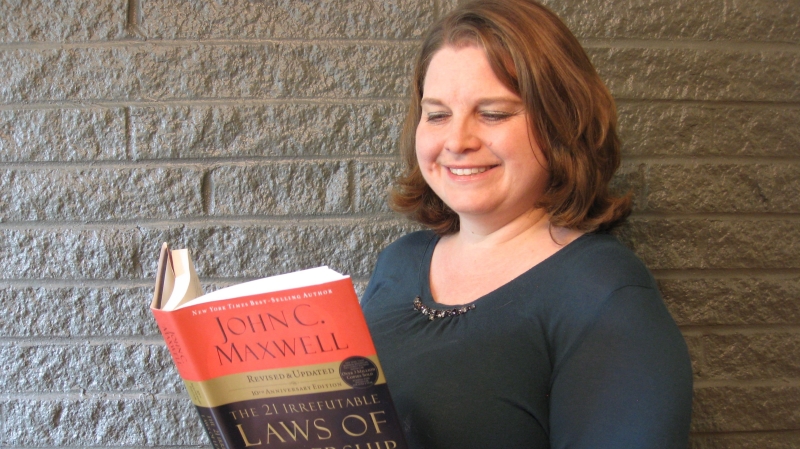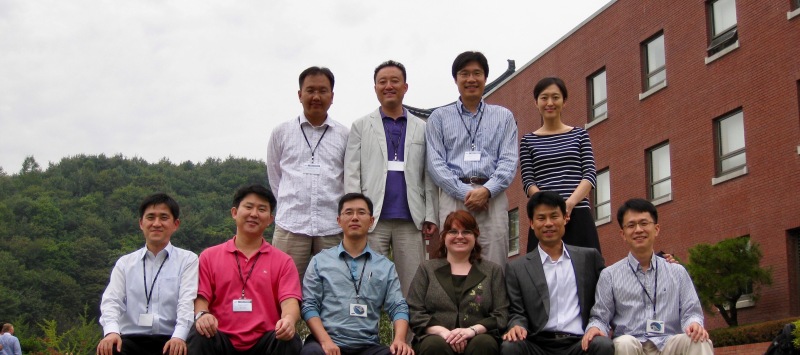by Tasha M. Troy
When I was much younger, I had the goal of living and working overseas, a goal that I was able to accomplish before I turned 30. It was not a terribly complicated goal, but for me, it was everything.
In retrospect, that was not a terribly challenging goal. Getting the education, being in the right position, and getting the right training – those were all important, but without the right support and connections, I would never have accomplished my goal.
- My parents did a lot to support my efforts in towards getting the education I needed.
- I had to get some teaching experience, and the director of the program I taught with in St. Louis – my first position in my field – took a chance on me.
- One of the senior teachers mentored me a little bit and opened an opportunity for me to attend a conference, which led to the opportunity to get a job teaching in South Korea.
I couldn’t have accomplished even this seemingly simple goal by myself.
So even my small goal required a network of people around me to support that process.
We often hear the phrase, “It’s lonely at the top.” When I first started teaching and training, that was how I managed the groups that I was working with. I always focused on delivering great content, but I didn’t always get real close or make the effort understand the students.
John Maxwell argues that the phrase “it’s lonely at the top” was never made by a great leader. Great leaders understand that they need to know and understand their people. This is not just how well they can function on a job, but some of their hopes and their dreams, their values, what is important to them, what truly motivates them. I’ve found the more I get to know people as individuals, the more effectively I can lead them, whether it’s leading them through a class activity or a project or whether it’s leading my friends through a challenging situation or my family through a difficult time. The more I connect with the people, the easier it is to have influence and to lead them.
In his book Leadership Gold, John shares four truths about “the top.” Now everyone’s trying to get to the top of the ladder, the top of the mountain; they want to be at the top of their game, but there are 4 truths that John shares that I think are really relevant.
First: no one ever got to the top alone.
Here in the United States, we often have this focus on a self-made man and how we encourage people to be independent, strong, and off on their own. We idolize the Lone Ranger, but the truth is, no one ever got to the top alone; even the Lone Ranger had Tonto. This was actually highlighted to me a few years ago when I read a book by Dr. Howard Gardner.
Dr. Gardner is famous for his “multiple intelligence theory.” Simply put, to measure IQ, you measure mathematical and linguistic knowledge, but Dr. Gardner says there are seven or eight different types of intelligence including spatial and bodily-kinesthetic, interpersonal and intrapersonal.
In his book titled Creating Minds: An anatomy of creativity seen through the lives of Freud, Einstein, Picasso, Stravinsky, Eliot, Graham, and Ghandi,he took different “geniuses” in these different types of intelligence and showed how their career developed. The truth is, none of them were able to accomplish their incredible success by themselves, regardless of their area of genius. Each of these people had a group around them that challenged them and encouraged them. So no one ever gets to the top alone.
Second: making it to the top is essential to taking others to the top.
This is something that I practice in my own life. I focus on teaching and training communication and relationship building skills, and I know that if I am not continually developing those skills and becoming better and better at handling difficult people, at managing conflicts, etc., there’s nothing I can teach or encourage others to accomplish.
Third: taking people to the top is more fulfilling than arriving alone.
I get such a thrill out of helping other people develop the skills that I am still developing; I’m just a few steps ahead. As I encourage other people, it’s such a fulfilling experience to see people begin to have better relationships and stronger relationships because of just small things that I’ve been able to teach them.
In particular, part of the course that I taught this spring was intense listening, and I encourage people to focus on listening to understand, not listening to respond. I’ve had two people come back and say, “I now have a better relationship with my adult daughter because I’ve taken the time to listen and understand her perspective.” And that is such a wonderful thing for me to hear, that the things I teach actually impact relationships and improve people’s lives.
Fourth: much of the time, leaders are not at the top.
John Maxwell talks about how leaders need to actually go back to where the people are so they can lead them back up. If you are not investing your time and your energy with people, you’ve kind of missed the point of what it means to be a leader. In fact, he said that if you’re leading and nobody is following, all you’re doing is taking a walk. And if you’re too far ahead of the people you’re trying to lead, you’ve lost your ability to influence them.
Take It Deeper
Where I’m at now, my personal mission is to make the world a better place by helping others develop the interpersonal skills needed in a culturally diverse environment. I have to meet the right people who will help me help others. In the end “one is too small a number to achieve greatness.” I am now focused on finding the people who want to go to the top with me.
Sometimes it’s hard to know where to start. If you would like to go deeper on this topic, I hold free exploratory coaching sessions each week. You can register online at Troy Communications or email me to schedule an appointment at TMTroy@TroyCommunications.Net
If you enjoyed this article and would like to receive these monthly posts in your inbox, you can subscribe at Troy Communications Blog.









